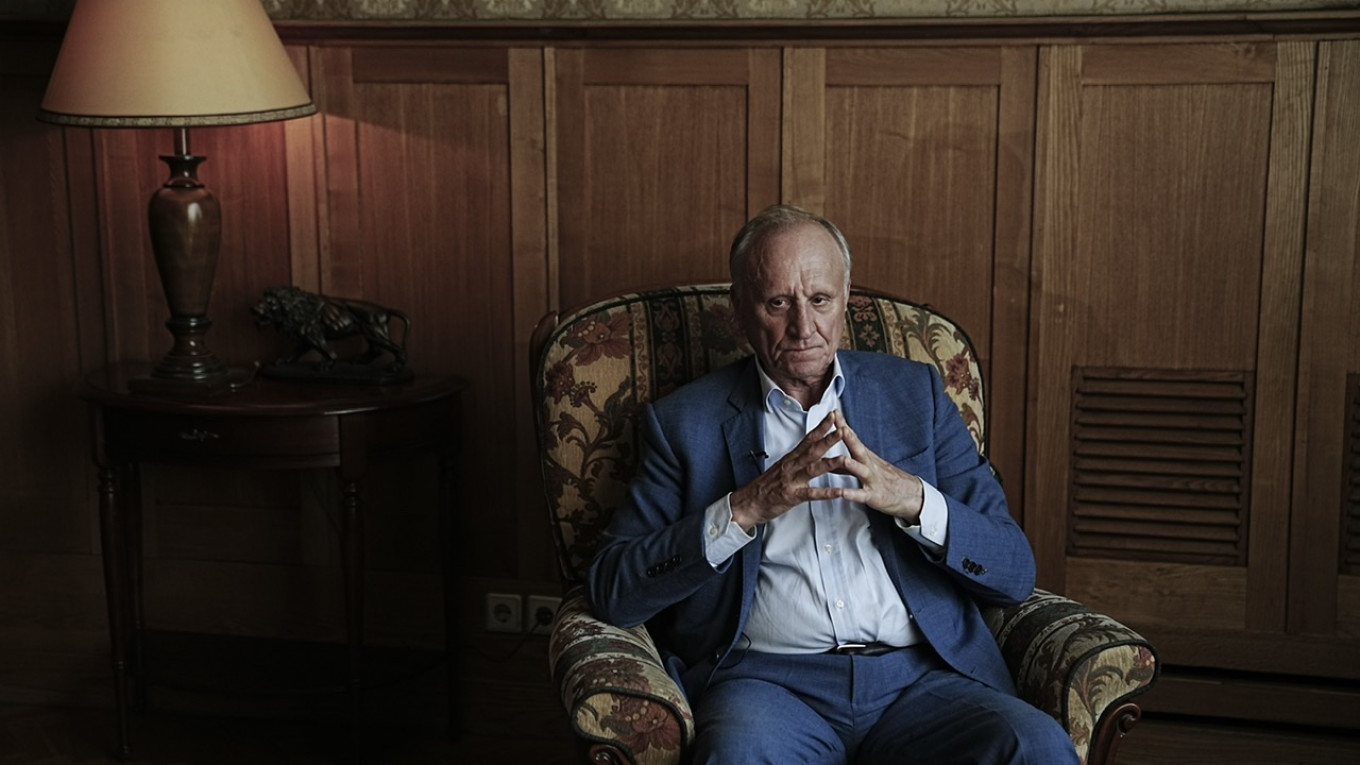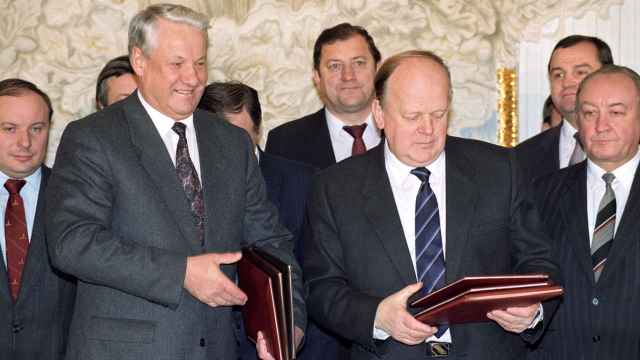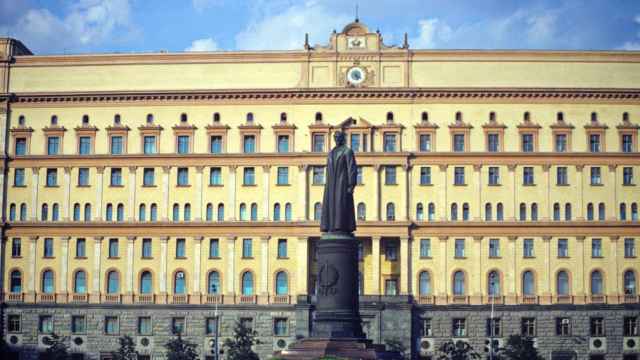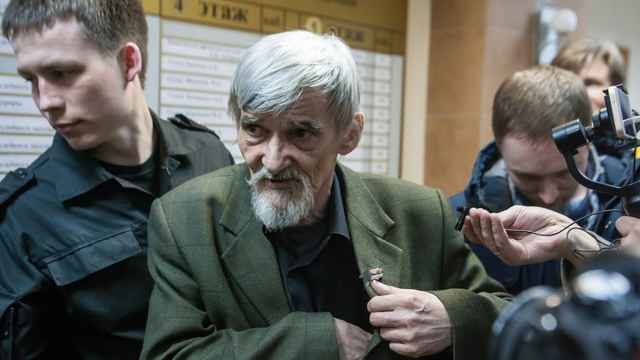Gennady Burbulis, a close associate of former Russian President Boris Yeltsin who was one of the signatories to an agreement ending the Soviet Union, died Sunday aged 76.
Burbulis was first deputy prime minister of the Russian Federative Socialist Republic when he helped draft and signed the Belovezha Accords, which declared the end of the U.S.S.R., on Dec. 8, 1991.
Two other signatories, Ukrainian President Leonid Kravchuk and Belarusian Parliament Chairman Stanislav Shushkevich, died earlier this year.
Yeltsin himself died at age 76 in 2007.
Burbulis' spokesman Andrei Markov said the politician died unexpectedly in Azerbaijan.
"He was not ill, was feeling fine and had just taken part in the IX Global Baku Forum, which discussed 'Threats to the global world order,'" Markov told Interfax.
The news agency did not disclose the cause of Burbulis' death.
Born on Aug. 4, 1945, in the Urals city of Pervouralsk, Burbulis masterminded Yeltsin's successful 1990 presidential campaign.
Widely dubbed Yeltsin's "Grey Cardinal," he played a key political role in the early years of Yeltsin's first term as Russian president.
But Burbulis fell out of favor in 1993 amid criticism of the political and economic reforms he helped develop.
He was a deputy in the State Duma, Russia's lower house of parliament, between 1993 and 1999, a deputy governor of Novgorod region in 2000-01, and a senator in the Federation Council from 2001-2007.
He leaves behind a wife, Natalia, and a son, Anton.
A Message from The Moscow Times:
Dear readers,
We are facing unprecedented challenges. Russia's Prosecutor General's Office has designated The Moscow Times as an "undesirable" organization, criminalizing our work and putting our staff at risk of prosecution. This follows our earlier unjust labeling as a "foreign agent."
These actions are direct attempts to silence independent journalism in Russia. The authorities claim our work "discredits the decisions of the Russian leadership." We see things differently: we strive to provide accurate, unbiased reporting on Russia.
We, the journalists of The Moscow Times, refuse to be silenced. But to continue our work, we need your help.
Your support, no matter how small, makes a world of difference. If you can, please support us monthly starting from just $2. It's quick to set up, and every contribution makes a significant impact.
By supporting The Moscow Times, you're defending open, independent journalism in the face of repression. Thank you for standing with us.
Remind me later.






